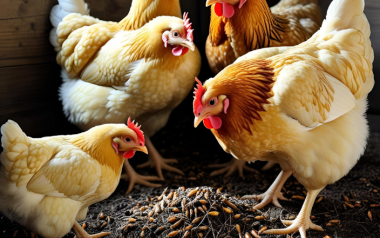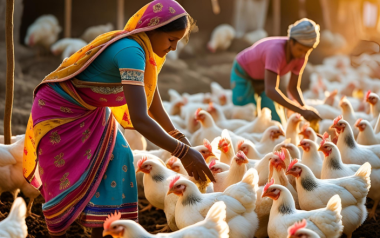18 Jul 2025
Multi-faceted strategy for sustain animal protein production in SEA
Biosecurity is the most urgent priority for Southeast Asia’s food security challenges.
Sustainable and resilient animal protein production is essential to Southeast Asia’s food security and environmental goals, says Ed Manchester, Global Commercial Director of Ecolex Animal Nutrition.
He shared a multi-faceted strategy built on four interconnected pillars for sustainable animal protein production:
- Biosecurity
- Use of local raw materials
- Feed efficiency
- Antibiotic stewardship
Biosecurity
Among the four pillars, Mr Manchester highlighted biosecurity as the region’s most urgent priority.
“Diseases such as avian influenza, African swine fever, and white spot syndrome virus have devastated animal populations and farmer livelihoods, disrupting supply chains and threatening protein availability and affordability,” he warned.
Use of local raw materials
The use of locally sourced crops, agricultural byproducts, and food processing residues plays a vital role in reducing environmental impact by lowering transportation emissions and enhancing supply chain resilience, Mr Manchester explained.
This approach minimizes dependence on imports, providing stability against global supply chain shocks like those experienced during the Covid-19 pandemic.
Additionally, “it supports regional economies and aligns with circular economy principles by upcycling materials that might otherwise be wasted,” he said.
Feed efficiency
Optimizing feed efficiency is another cornerstone of sustainable animal production, according to Mr Manchester.
“By formulating diets with well-characterized local raw materials, producers can improve feed conversion, reduce feed costs, and lower the environmental footprint of animal protein production,” he said.
Antibiotic stewardship
Mr Manchester revealed that his company strongly advocates antibiotic stewardship as a key component of sustainable livestock management.
Integrating biosecurity with nutrition strategies that promote animal health and resilience can reduce antibiotic reliance, helping to mitigate the global challenge of antibiotic resistance.
This holistic approach supports safer food production and aligns with worldwide efforts to preserve antibiotic efficacy.
“Utilizing local raw materials, feed efficiency and antibiotic stewardship are critical for long-term sustainability, but robust biosecurity is the cornerstone that provides long-term protection for investments in these areas,” he stressed.







































